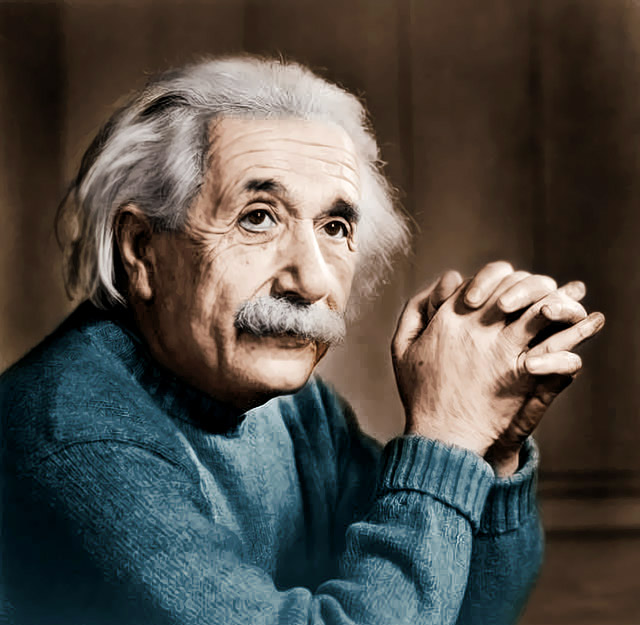Mistakes of some great people
Newton's rapid change in life and career naturally became the subject of contemporaries. The clown character in a contemporary play said: Who doesn't know the name of Sir Isaac! Coiner! Great truth! .
The unfortunate mistakes of some great people in scientific research
Isaac Newton stopped scientific research
Although Newton had great achievements in scientific research, he always had economic difficulties. In 1692, intrigued by the wealthy material life, Newton decided to abandon the path of studying arduous science to find work that could give high income.

Information spread, many people introduced him to jobs. The first was the principal of a public school in London, but he refused because of unpaid salary. Next is the director of the royal money casting factory in England with very good remuneration. Newton agreed and moved to London.
Since then, he has been passionate about using his great brain in the work of minting money. His effort was highly appreciated by the royal family, and he appointed him as the Head of the Mint . This position gave Newton annual income of up to 2,000 pounds, very high at that time. That being said, at that time the London Observatory budget was only £ 500.
The new job kept him busy. As a result, he did not have time to continue teaching research at Cambridge University . By 1701, he gave up his university professorship . This event caused tremendous changes in the second half of his life: From poverty to wealth, from a quiet scholar living in university to being a relatively influential figure in London's bureaucracy. , having an increasingly close relationship with the Royal Family.
Newton's rapid change in life and career naturally became the subject of contemporaries. The clown character in a contemporary play said: Who doesn't know the name of Sir Isaac! Coiner! Great truth!
The negation of Albert Einstein
In many of Einstein's great scientific achievements, the most important is the theory of relativity and the development of quantum theory raised by Max Planck.

However, the most regrettable thing for life is that although in the early days of quantum industry, Einstein was the first major scientist to stand up and develop, but later he changed his attitude toward quantity. death. As a result, while many scientists under his guidance have studied this field in depth and obtained a series of new achievements, Einstein, on the contrary, has since 1925 started to go back in his own way. , become a stubborn opponent of quantum mechanics.
In 1927, German physicist Werner Heisenberg based on the achievements of many scientists in the field of quantum found the "Uncertainty Principle", reflecting the truth about the duality of quantum wave particles. . This principle shows that: for microscopic particles, to determine the correct position, it is not possible to determine its speed. Conversely, if you want to determine its speed, it is impossible to determine the correct position. This is an important theoretical basis for the latter to recognize micro particles.
But Einstein negated this principle, saying that quantum has no theoretical basis, just an incomplete random hypothesis. He not only criticized quantum theory but actually stopped studying the field, focusing entirely on relativity. Later, Einstein did not have the results of quantum research. Mistakes lead to regret. Many people at the time thought that this was a tragedy, since Einstein had been searching for loneliness, and humans lost a flag, a leader of science.
Mendeleev's conservatism
Mendeleev's recurring law of chemical elements is a revolutionary discovery in the field of chemistry. After that, Mendeleev also intended to continue the study to clarify the cause of periodic variation in the properties of the elements by atomic mass .

But he did not escape the influence of traditional notions - the element cannot be transformed, indivisible. So by the end of the nineteenth century, when people discovered the existence of radioactive and electronic elements , giving new empirical evidence, showing the transformation from atomic to atomic quantities, Mendeleev did not benefit. This new achievement continues to develop its periodic law, in contrast to the negativity of atomic complexity and the objective existence of electrons.
The discovery of the radioactive element clearly proved that the element could be transformed, but he said: "We should not believe the complex nature of the substance that we already know."
He also stated: "The concept of the element that cannot be transformed is very important, the basis of the whole world." However, based on the great discoveries of radioactive elements and electronics, scientists have gradually outlined the nature of the law of circulating chemical elements .
They relied on the rational content of Mendeleev's circulatory law to create a new, scientific law of law than his argument. This law indicates that the elements in the periodic table are arranged by the valence of the atom , the atomic number increases, the valence of the atom also increases, the number of neutrons will also increase. The number of chemotherapy and the number of neutrons combined represents an increase in the quantum atom.
But the reality proves that not many elements have many kinds of atoms. In a type of element with a isotope containing many neutrons, there is also a isotope containing fewer neutrons. The atomic mass of the element is the average number of isotopes. Chemotherapy is the number of electrons outside the nucleus of the atom, which is also the charge of the atomic nucleus, ie the atomic number. Since then solve the problem Mendeleev left open. Conservatives have caused a great scientist like Mendeleev to regress on the path of studying the mystery of the periodic law, losing the opportunity to develop this law.
- The Great Wall and the many secrets people think
- 9 dangerous mistakes when first aid many people
- The most costly mistakes ever happened in history, there are cases of tens of billions of dollars
- 4 mistakes when eating dinner cause great harm to your health, maybe you also have it
- 5 common mistakes when using antibiotics
- Why do we repeat mistakes?
- The reason many people are afraid to say sorry
- These 4 mistakes are small but have caused NASA to suffer a disaster, causing billions of losses
- Common mistakes when pushing against
- Mistakes are harmful to health when people often cook rice
- 10 mistakes everyone makes when cooking meat
- Simple first aid tips but 90% of people make mistakes when urgent
 The most famous scientific failures in history
The most famous scientific failures in history Mysterious genius mechanic and the machine froze time
Mysterious genius mechanic and the machine froze time The son carries the 'bad gene' of genius Albert Einstein
The son carries the 'bad gene' of genius Albert Einstein Isaac Newton
Isaac Newton